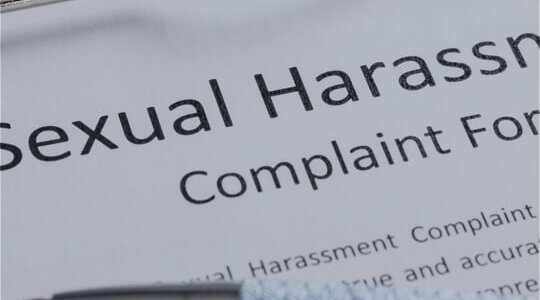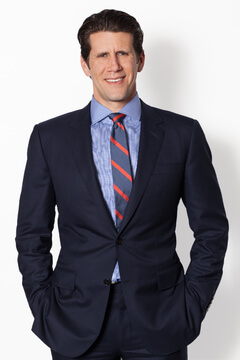Employers in New York City have a legal obligation to address complaints of sexual harassment and can be held liable for failing to do so. While employers can be held strictly liable for supervisor sexual misconduct, they can also be held responsible for non-supervisor sexual harassment. If you have been harassed by a supervisor or a coworker in your workplace, it takes an experienced sexual harassment lawyer to protect your rights.
What is sexual harassment?
Sexual harassment can occur in a number of ways. A supervisor who makes unwanted sexual advances or conditions benefits of employment on sexual factors may have committed “quid pro quo” sexual harassment. An employee may also be subjected to offensive conduct or comments by a non-supervisor that creates an abusive or hostile work environment.
No matter how it occurs, sexual harassment is considered an unlawful form of discrimination. Under the New York City Human Rights Law (NYCHRL), for example, it is unlawful for an employer or an employee or agent thereof, to discriminate against a person on the basis of gender in the terms, conditions, or privileges of employment.
To have a valid claim for a hostile work environment under the NYCHRL, the victim is only required to show that she or he was treated less well than others. But an employer may only be held liable for its employee’s behavior if the employer knew of the employee’s discriminatory conduct, and acquiesced in such conduct or failed to take immediate and appropriate corrective action (NYCHRL § 8-107(13)(b)).
When is an employer liable for non-supervisor sexual harassment?
A 2019 Manhattan Federal Court case, Feldesman v. Interstate Hotels, highlights how an employer can be held liable responsible for the discriminatory conduct of an employee towards another employee even if there is no direct supervisory relationship.
The case involved a female plaintiff who worked as a server at the iconic Roosevelt Hotel’s rooftop bar managed by the defendant. The plaintiff claimed that she was subjected to multiple instances of harassment during her employment by a male bartender who was not her direct supervisor. The bartender allegedly made offensive comments about her body and engaged in other forms of her harassment.
The plaintiff also said that managers at the bar had witnessed the harassment and that she reported the bartender’s actions to management orally. After management ignored her complaints and failed to take corrective action, the plaintiff filed a written complaint via email.
Several other staff members also complained about the bartender’s behavior, but management still failed to act. The defendant subsequently fired the plaintiff and two other employees, ostensibly for violating the company’s tip policy. The plaintiff sued the defendant under the NYCHRL, alleging sexual harassment and unlawful retaliation.
The defense filed a motion for summary judgment arguing, in part, that a jury could not find the defendant liable because the bartender was not the plaintiff’s direct supervisor. The judge denied the motion, explaining that an employer can still be held liable for a non-supervisor’s harassment if it failed to take reasonable steps to eliminate the harassment.
The Takeaway
New York City law makes it clear that an employer can be held liable for a non-supervisor’s sexual harassment as long as the employer knew of the employee’s unlawful conduct and failed to stop it. If you are being subjected to harassment by a coworker, it is important to formally complain to your supervisor or human resources personnel. While coming forward is frightening, doing so will validate your claim if you decide to take legal action. By contacting and working with an experienced sexual harassment lawyer, you can obtain justice and recover meaningful compensation.

